Main aspects of economic policy in Norway since the war. Oslo, Bergen: Universitetsforlaget. 1968. OCLC 5753685. [9]
Related Research Articles

Odvar Nordli was a Norwegian politician from the Labour Party. He was the 28th prime minister of Norway from 1976 to 1981 during the Cold War. Before serving as Prime Minister, Nordli served as the minister of Local Government from 1971 to 1972.

Trygve Martin Bratteli was a Norwegian newspaper editor, a politician with the Norwegian Labour Party, and Nazi concentration camp survivor. He served as the 26th prime minister of Norway from 1971 to 1972 and again from 1973 to 1976. He was president of the Nordic Council in 1978.

The Norway Democrats is a radical right national conservative and anti-globalist political party in Norway without parliamentary representation.
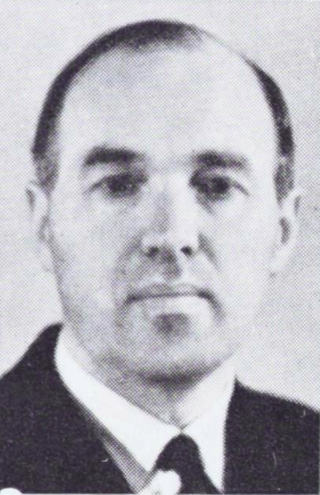
Kjell Bondevik was a Norwegian politician for the Christian Democratic Party.
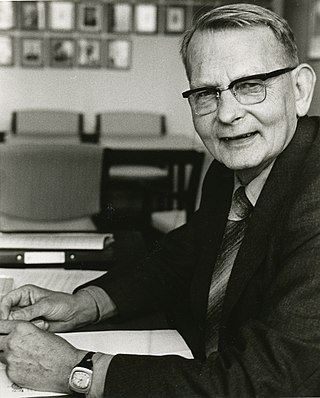
Andreas Zeier Cappelen was a Norwegian jurist and politician for the Labour Party. He was born in Vang, Hedmark.
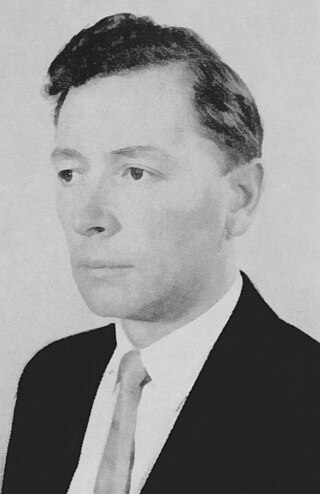
Ragnar Karl Viktor Christiansen was a Norwegian politician for the Labour Party.
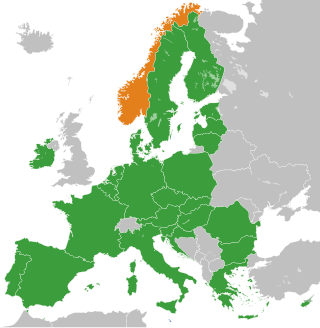
Norway is not a member state of the European Union (EU). However, it is associated with the Union through its membership of the European Economic Area (EEA), signed in 1992 and established in 1994. Norway was a founding member of the European Free Trade Association (EFTA) in 1960, which was originally set up as an alternative to the European Economic Community (EEC), the main predecessor of the EU. Norway had considered joining both the EEC and the European Union, but opted to decline following referendums in 1972 and 1994. According to the European Social Survey conducted in 2018, 73.6% of Norwegians would vote 'No' in a referendum to join the European Union. Norway shares land borders with two EU member states, namely Finland and Sweden, and maritime borders with a third, Denmark.
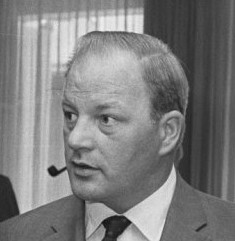
Alv Jakob Fostervoll was a Norwegian politician for the Labour Party. He served as Norwegian Minister of Defence and Governor of Møre og Romsdal.

The Minister of Climate and the Environment is a Councilor of State and Chief of Norway's Ministry of the Environment. The current minister is Andreas Bjelland Eriksen. The ministry is responsible for environmental issues, including influencing environmental impacts on other ministries. Subordinate agencies include the Directorate for Cultural Heritage, the Polar Institute, the Environment Agency and the Mapping Authority.
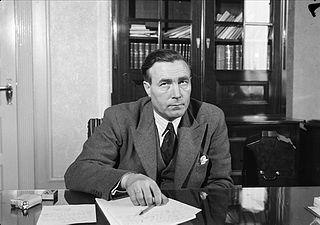
Olav Meisdalshagen was a Norwegian politician for the Labour Party best known for serving as the Norwegian Minister of Finance from December 1947 to November 1951 and as the Norwegian Minister of Agriculture from January 1955 to May 1956. He was also a Member of Parliament for a long time, being elected for the first time in parliamentary election of 1936 and serving until his death, except for the period between 1940 and 1945 when the Parliament of Norway was de facto defunct due to the occupation of Norway by Nazi Germany. His death in 1959 came halfway through his fifth term in Parliament, and shortly after a parliamentary speech.
Ulf Oscar Sand was a Norwegian civil servant and politician for the Labour Party.

Trygve Magnus Slagsvold Vedum is a Norwegian politician who has served as Minister of Finance since 2021. A member of the Centre Party, which he has led since 2014, he has been a Member of Parliament (MP) for Hedmark since 2005. Vedum also served as Minister of Agriculture and Food from 2012 to 2013.

Bjartmar Alv Gjerde was a Norwegian politician for the Labour Party. He held several posts as a government minister between 1971 and 1980, and was Norway's first Minister of Petroleum and Energy. He was later the director-general of the Norwegian Broadcasting Corporation and director of the government agency Aetat.
Events in the year 1927 in Norway.

The Minister of Local Government and Modernisation is a Councillor of State and Chief of the Norwegian Ministry of Local Government and Regional Development. Currently, Erling Sande of the Centre Party has held the post since 2023. The ministry is responsible for local administration, including municipalities and county municipalities, rural and regional policy, information technology, elections and government administration, including management of state real estate and government employment. Major subordinate agencies include the Government Administration Services, Statsbygg, the Competition Authority, the National Office of Building Technology and Administration, the State Housing Bank and the Data Protection Authority.
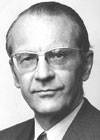
Knut Getz Wold was a Norwegian economist and civil servant, who served as the governor of the Central Bank of Norway from 1970 to 1985.

The Minister of Fisheries and Ocean Policy is a councilor of state in the Ministry of Trade, Industry and Fisheries. The incumbent minister is Marianne Sivertsen Næss of the Labour Party who has served since April 2024.

Bjørnskinn is a former municipality in Nordland county, Norway. The 310-square-kilometre (120 sq mi) municipality existed from 1924 until its dissolution in 1964. The municipality was centered around the Risøysundet strait. It encompassed the southern part of the island of Andøya and the northern part of the island of Hinnøya in the southern part of what is now Andøy Municipality. The administrative centre was the small village of Bjørnskinn where Bjørnskinn Church is located. The largest village in Bjørnskinn was the village of Risøyhamn.
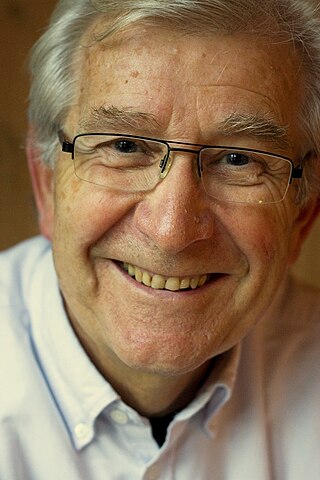
Arvid Møller was a Norwegian journalist and non-fiction writer, born in Strinda. Having worked as journalist for various newspapers, he was eventually assigned with NRK for about forty years. In addition to these assignments, he wrote more than one hundred books, many of them biographies of well known and lesser known people.
Johan Brun was a Norwegian photographer.
References
- 1 2 Norderval, Ingunn. "Per Kleppe". In Helle, Knut (ed.). Norsk biografisk leksikon (in Norwegian). Oslo: Kunnskapsforlaget. Retrieved 11 March 2021.
- 1 2 3 4 5 6 7 8 9 10 11 12 "Kleppe, Per (1923-)". stortinget.no (in Norwegian). Retrieved 11 March 2021.
- ↑ "Nordisk samarbeidsminister i Norge". regjeringen.no (in Norwegian). Retrieved 13 March 2021.
- 1 2 3 4 Garvik, Olav. "Per Kleppe". In Bolstad, Erik (ed.). Store norske leksikon (in Norwegian). Oslo: Norsk nettleksikon. Retrieved 11 March 2021.
- ↑ "Sand, Ulf Oscar (1938-2014)". stortinget.no (in Norwegian). Retrieved 11 March 2021.
- 1 2 "Previous Secretaries-General". efta.int. Retrieved 13 March 2021.
- ↑ "Tidligere finansminister Per Kleppe er død". e24.no (in Norwegian). Retrieved 12 March 2021.
- ↑ "Tidlegare finansminister Per Kleppe (Ap) er død". nrk.no (in Norwegian). Retrieved 11 March 2021.
- ↑ Main aspects of economic policy in Norway since the war. OCLC 5753685 . Retrieved 13 March 2021– via worldcat.org.
- ↑ EFTA - NORDEK - EEC. OCLC 467077470 . Retrieved 13 March 2021– via worldcat.org.
- ↑ Bank- og kredittvesenet. OCLC 1028247583 . Retrieved 13 March 2021– via worldcat.org.
- ↑ Norsk økonomi og dens internasjonale sammenheng. OCLC 13236120 . Retrieved 13 March 2021– via worldcat.org.
- ↑ Norges vei til Europa. OCLC 21448769 . Retrieved 13 March 2021– via worldcat.org.
- ↑ Visjonen og hverdagen. OCLC 23254979 . Retrieved 13 March 2021– via worldcat.org.
- ↑ Kleppepakke : meninger og minner fra et politisk liv. OCLC 55207725 . Retrieved 13 March 2021– via worldcat.org.
- ↑ "Kleppe med ny "Kleppepakke"". nrk.no (in Norwegian). 6 October 2003. Retrieved 12 March 2021.
External links
- "Per Kleppe" (in Norwegian). Storting.
Per Kleppe | |
|---|---|
 Kleppe in 2009 | |
| Minister of Finance | |
| In office 16 October 1973 –8 October 1979 |